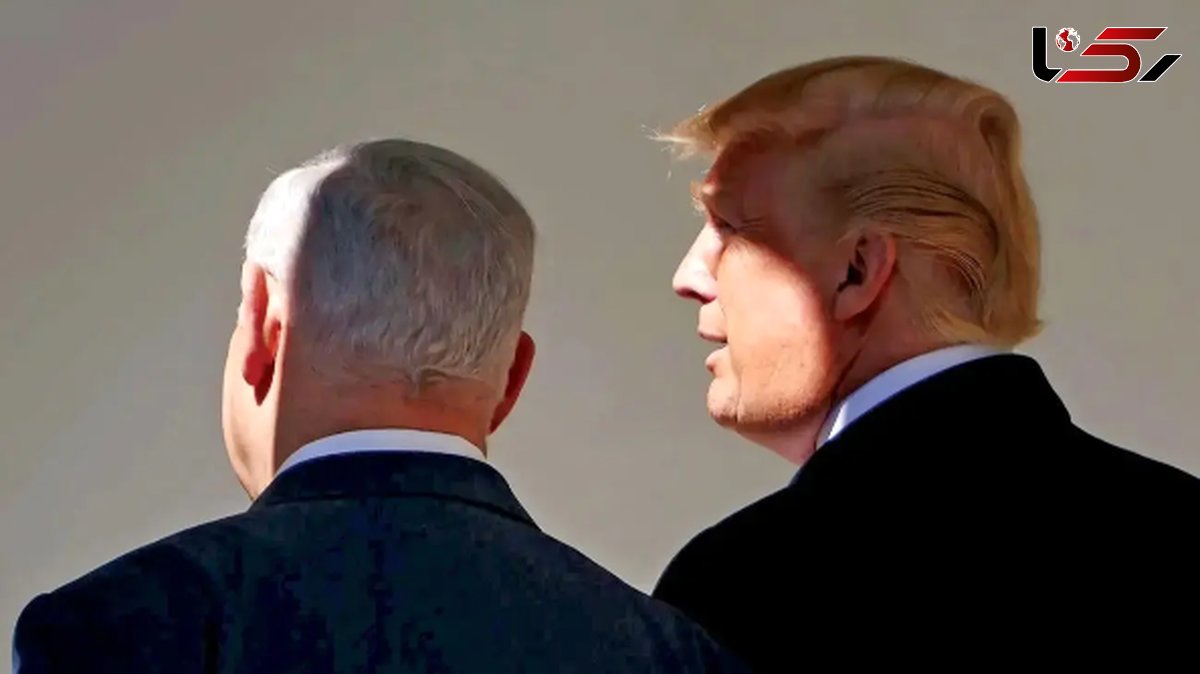The Qatar Strike Controversy: What Did Netanyahu Tell Trump?
Rokna Political Desk: Tensions have surfaced between Israel and the United States over the Israeli strike on Qatar. The central question: was former U.S. President Donald Trump informed of the operation before the missiles were launched? Seven Israeli officials claim the White House was briefed in advance, but American officials present a different narrative.

According to Rokna, citing Axios, Israeli Prime Minister Benjamin Netanyahu informed President Trump on Tuesday morning that Israel intended to target Hamas leaders in Qatar—just before the operation took place. Three Israeli officials with direct knowledge of the matter confirmed this to Axios.
The point of contention lies in timing. The White House maintains that it was informed only after the missiles were launched and that Trump had no opportunity to oppose the attack. Yet, seven Israeli officials told Axios that the White House knew earlier, even if the window to stop the strike was limited.
When asked on Tuesday evening whether Israel had informed him beforehand, Trump said he had not been aware. He publicly criticized the attack, noting that Qatar is a key U.S. ally.
White House press secretary Karoline Leavitt told Axios: “As President Trump stated, the U.S. military informed him of Israel’s strike against Hamas leaders in Doha, and he immediately tasked his special envoy, Steve Witkoff, with notifying Qatar.”
American officials said that U.S. forces observed Israeli aircraft in the air and sought clarification from Israel, but no response came until after ballistic missiles were fired toward Hamas’s headquarters in Doha. The White House said Witkoff rushed to warn Qatari officials, but by then the missiles had already struck. Media outlets, including Axios, reported that Trump was not consulted beforehand.
Striking a U.S. ally without consultation was seen as a bold and unprecedented act by Israel—particularly as Hamas leaders were gathering to discuss Trump’s latest peace plan for Gaza.
Israeli officials insist Netanyahu did notify the White House at the last moment, early enough that the strike could still have been halted. Three Israeli officials told Axios that Netanyahu spoke to Trump around 8:00 a.m. Washington time, while the first reports of explosions in Doha emerged at 8:51 a.m.
A senior Israeli official said: “Trump was informed of the attack before the missiles were launched. There was first a political-level discussion between Netanyahu and Trump, and then follow-up through military channels. Trump did not object.”
Another senior Israeli official stated the U.S. was informed “well in advance” at the political level. “If Trump wanted to stop the strike, he could have. But in practice, he did not.” Both stressed the missiles had not yet been launched when the two leaders spoke and argued that Israel would have canceled the operation had Trump opposed it.
The White House declined to answer specific questions about the timeline, and the Israeli Prime Minister’s Office also refused to comment. Israeli officials did not provide exact details of the Netanyahu-Trump call—whether Netanyahu merely informed Trump of the plan or explicitly sought approval.
It is also unclear whether Trump immediately notified his aides, some of whom expressed anger at Netanyahu after the strike. Netanyahu has repeatedly described the attack as a unilateral Israeli action, including at a Monday press conference alongside U.S. Secretary of State Marco Rubio, who will travel to Doha on Tuesday for talks with Qatari officials.
Behind the scenes, an Israeli official told Axios that while Israel informed the Trump administration in advance, it decided to align with Washington’s denial of prior knowledge to preserve U.S.-Israeli relations. “From our side, the decision was made to help them,” the official said.
Other Israeli officials described the U.S. stance as political theater, insisting that Washington had been briefed. One said the Trump administration had clear reasons to distance itself from the strike. Another claimed this was not the first time the Trump administration had “reframed conversations with Israel” for political purposes.
The strike in Doha has strained U.S.-Qatar relations, heightened tensions between Washington and Tel Aviv, and significantly deepened Israel’s regional and global isolation.
The attack killed five Hamas members and one Qatari security officer, though Hamas later announced that all its senior leaders had survived. Israeli officials told Axios that post-strike intelligence confirmed Hamas leaders had vacated the building shortly before the explosions.
Send Comments